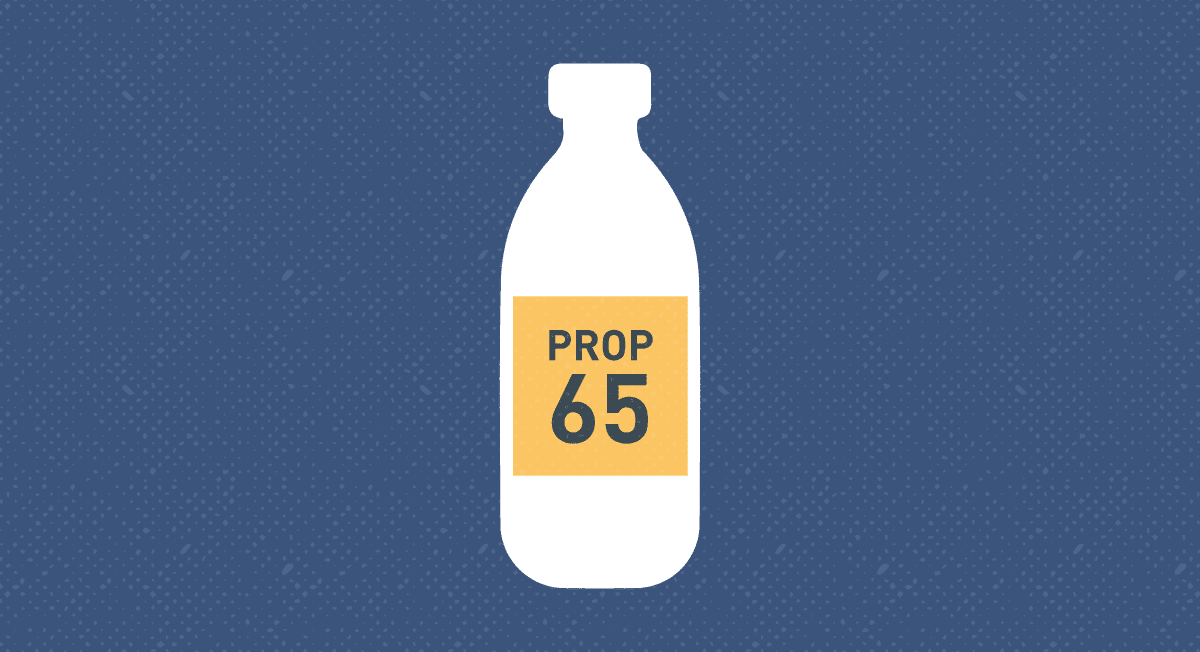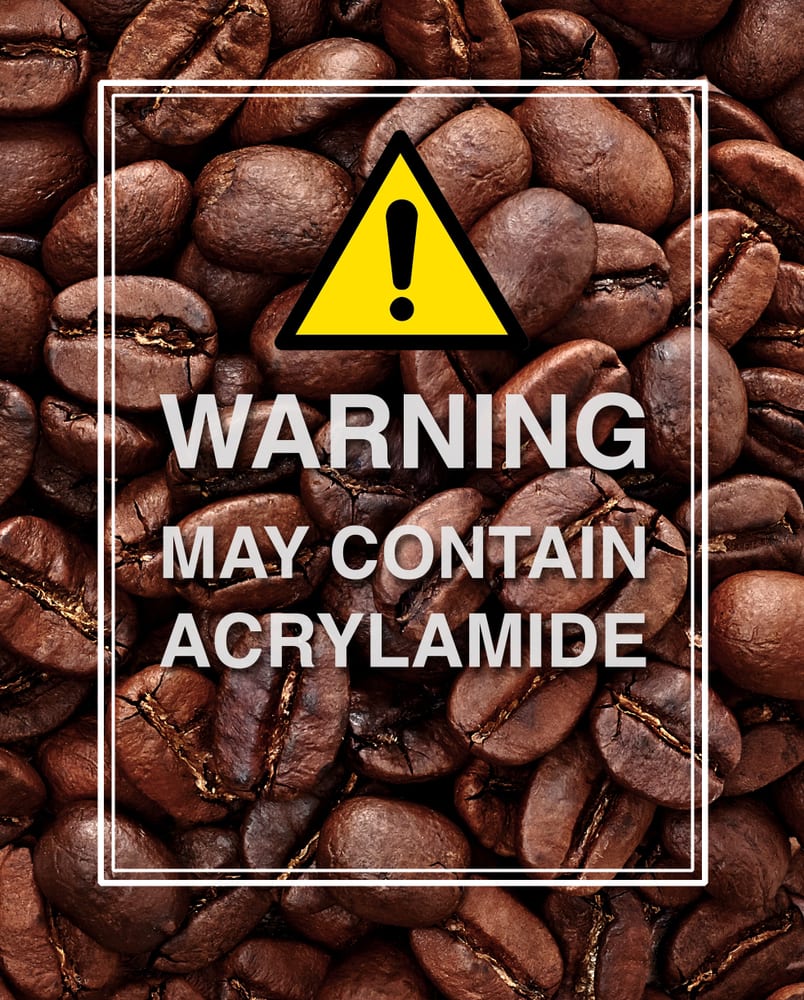
Wondering why some of the things you purchase have warning labels on them when you don’t even reside in California? This article will help guide you through everything there’s to know about Prop 65. Well, what is prop 65 lead limits for dietary supplements exactly?
Proposition 65: An Overview
It has been over 30 years since the residents of California overwhelmingly voted to pass proposition 65, formally known as the Safe Drinking Water and Toxic Enforcement Act. The stature requires businesses to provide clear and reasonable warnings prior to exposing individuals to chemicals that can cause reproductive harm or cancer. It also bans the discharge of such harmful substances to any source of drinking water(1). There are more than 800 chemicals that fall under the list of this Act, including mercury and lead.
Since its enactment, Prop 65 has brought about a substantial reduction in industrial air emissions of perchloroethylene, ethylene oxide, lead, and other contaminants. This Act has also generated significant reformulation of consumer products containing harmful toxic chemicals, often implemented nationwide, including calcium supplements, ceramic ware, brass faucets, galvanized pipe, hand tools, brass keys, water filters, water meters, crystal decanters, raincoats, exercise weight, electrical wires and cords, electrical tape, bicycle cable locks, baby rash creams, and powders, among other products(1).

How Prop 65 Help Reduce Lead Exposure?
While the dangers of lead exposure have been quite prevalent for years, human exposure to lead still remains one of the major environmental health threats today. Lead can cause various adverse health effects and can have a particularly devastating impact on young children. Since lead is used in several industrial processes, it can enter the environment from a wide range of sources and is ubiquitous in the human environment.
Since 1988, California’s proposition 65 Act, which is a right-to-know initiative has achieved some noteworthy triumphs in minimizing lead exposure to the public in media as diverse as factory emissions, wine capsules, hair dyes, ceramic ware, water well pumps, brass kitchen faucets, and calcium supplements(2).
Although the federal government regulated all these sources, Prop 65 has stimulated faster and more significant lead reductions by prompting companies to reformulate processes and change their manufacturing processes.
Factors that Make Prop 65 Effective: Proposition 65’s effectiveness stems from the following factors:
- It isn’t based on a one-at-a-time, product-by-product regulatory approach; it’s self-executing and enforcement friendly.
- It imposes stringent, health-protective limits on lead exposure.
- It relies partly on market incentives to transform industry behavior.
Are Supplements With Prop 65 Warning Labels Unsafe?
Not every product that has a prop 65 warning label is unsafe. It doesn’t mean that the product will cause reproductive harm or cancer. For instance, the warning level for reproductive toxins is 1000 times lesser than the lowest level at which animal studies reported no effect on reproductive health(3). At this dose, the risk of harm is quite low; however, the product still requires a prop 65 warning.
One example of this is lead. The proposition 65 lead limit for supplements is 0.5 mcg per day. The EPA (US Environmental Protection Agency) safe lead limit for drinking water is 15 mcg/L. This means that approximately one-fourth cup of the water considered safe by the EPA would bring you beyond the safe daily limit, according to Prop 65(3). Moreover, many foods contain naturally-occurring lead from the soil but are not subject to be labeled with the Prop 65 warning.
One ounce of dark chocolate contains about 0.6 mcg of lead, which would also exceed the safe lead limit by Prop 65 standards. This shows how the standard set by Proposition 65 is extremely low. Good quality supplement manufacturers take every precaution possible to ensure a safe product. If you see the Prop 65 warning on a product, it demonstrates that the company is compliant with the law – which is actually a very good sign.

Does Every Product Require a Prop 65 Warning Label?
Every product doesn’t require a Prop 65 warning. The Act mandates that a product is to be given a warning label only if it meets the following two criteria.
- The product is sold in California
- The product contains one or more of the substances that fall under the Prop 65 list(4).
The law specifically requires that the level of a listed substance be significantly lower than the level at which any harm has been documented. In most cases, the substances in question occur at levels too low to cause any measurable health effect. Moreover, there isn’t any known connection between exposure to the substances at these low levels and any actual risk of reproductive harm or cancer(5).
Why do Supplements Contain Lead?
Widespread in soil and in nature, lead can be found in many supplements and foods. Some proposition 65-listed substances are naturally found in animals and plants that are used as food. For example, safrole, a compound present in black pepper and basil. Other chemicals that fall under the prop 65 list forms when pressurized or cooked, ethanol in alcoholic beverages, or acrylamide in coffee. Also, the Canadian government indicated that the most significant source of lead comes from vegetables, cereal-based foods, beverages( which include tea, soda, wine, and beer).
How Does Prop 65 Act Affect Dietary Supplements?
Manufacturers of dietary supplements address prop 65 in various ways. Supplement manufacturers test their products to ensure that they meet the safe harbor limit as set by the prop 65. These limits are usually about 1k times lower as compared to the federally established safe limit.
Prop 65 Chemicals
There are more than 800 prop 65 chemicals that need a warning if a company causes an exposure- and the list is continually growing. A dietary supplement brand usually causes an exposure if their product contains a prop 65 substance. However, this poses a burden on nutritional supplement companies as they need to determine if their supplements contain any of the prop 65 chemicals. Clearly, it isn’t economically and logistically possible for the supplement company to test over 800 chemicals. Yet, they’re on the hook to determine if any of these substances are present in their products.
To make sure that they comply with the law to the greatest extent possible, these companies must prioritize which chemicals to test for. One effective way to execute this is by keeping track of the chemicals that are usually found in supplements, which refers to the chemicals that generally trigger a violation.

Exposure Under Proposition 65
Once the company determines which chemicals to test for in their product, they’ll need to determine the exposure level next. Prop 65 is only concerned with how much of a chemical is present in the supplement to the extent that an individual is exposed to it.
Testing for proposition 65 chemicals tends to be extremely expensive for a supplement company. The company could have several products, all of which require testing to ensure prop 65 compliance. Also, the company can deduce a warning is needed on the basis of their knowledge concerning the source of their ingredients and the manufacturing process of their products.
Given the finite number of economic resources, absolute assurance of prop 65 compliance is almost impossible. In such a case, the best approach for the company is to prioritize which chemicals to test for, conduct chemical testing as appropriate, and ensure that robust quality control processes are in place.
Prop 65 Warnings
Once the testing for prop 65 chemicals is done, the company will then have to decide if they need to provide a warning, which is not an easy decision to make. The prop 65 regulations offer ” safe harbor levels,” which refers to the allowable levels of prop 65 chemical exposure. However, the problem is that out of the 800+ prop 65 chemicals, the OEHHA has only developed safe harbor levels for about 300 chemicals(6).
If a prop 65 chemical is present in a product, the supplement company will have to make a business decision. Either they must prove that it’s within a safe harbor level if challenged by a lawsuit or provide a warning. If the supplement company decides to give a warning, there are specific requirements they’ll have to follow to ensure that the warning is in compliance with the law.
What’s the Appropriate Warning?
The statute requires supplement companies to label their products containing the ingredients in the prop 65 list with the following warning.
“WARNING: THIS PRODUCT [MAY] CONTAIN[S] CHEMICALS KNOWN TO THE STATE OF CALIFORNIA TO CAUSE CANCER AND BIRTH DEFECTS OR OTHER REPRODUCTIVE HARM.”
How is Prop 65 Enforced?
Prop 65 is enforced via litigation, wherein a private or a public party brings a lawsuit against a supplement company.
- Private parties can bring a lawsuit after providing a 60 Day Notice of the alleged violation to the Attorney General(AG), the city attorney, the appropriate district attorney, and the company accused of the breach.
- Public lawsuits can be brought by any district attorney, the AG, or the city attorney in cities with a population above 750,000.
Conclusion
Before you get are able to sell supplements, you need a product that is going to sell great along with being affordable.
SMP Nutra offers a wide variety of stock supplements that you can start to sell for your brand today! Check out our stock private label supplements now!
We also offer design services to make your supplement look professional and attractive.
References:
- https://heinonline.org/HOL/LandingPage?handle=hein.journals/elrna35&div=74&id=&page
- https://heinonline.org/HOL/LandingPage?handle=hein.journals/elrna29&div=95&id=&page
- https://www.ayush.com/proposition-65-initiative
- https://oehha.ca.gov/proposition-65/proposition-65-list
- https://oehha.ca.gov/proposition-65/proposition-65-faqs
- http://www.anh-usa.org/wp-content/uploads/2013/04/Prop-65-manual.pdf

